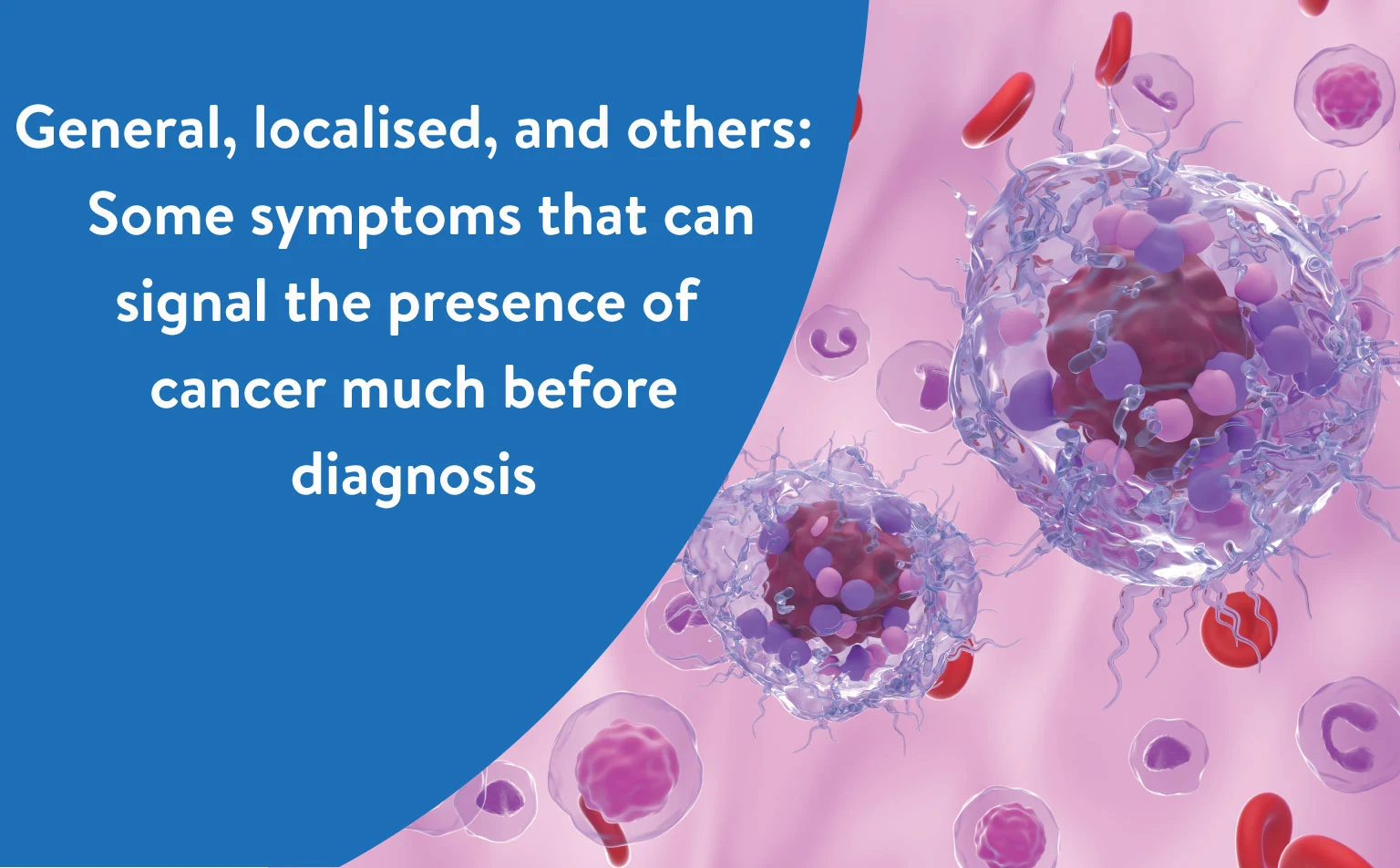Cancer symptoms can sometimes appear much before a formal diagnosis. These symptoms can vary depending on the type of cancer, but they are generally categorized as general, localized, or other. Here’s an overview:
-
General Symptoms:
-
Unexplained weight loss: Significant, unexplained weight loss without dieting or increased activity.
-
Fatigue: Persistent tiredness that doesn’t improve with rest.
-
Fever: Unexplained fever, especially if it’s persistent.
-
Night sweats: Excessive sweating during the night, often soaking through clothes.
-
Pain: Persistent pain that doesn’t go away.
-
-
Localized Symptoms:
-
Persistent cough or hoarseness: Could signal lung or throat cancer.
-
Lumps or swelling: Unexplained lumps or masses under the skin, especially in the breast, testicles, or lymph nodes.
-
Changes in bowel or bladder habits: Blood in stool, prolonged constipation, diarrhea, or changes in urination could indicate colorectal, prostate, or bladder cancers.
-
Unexplained bleeding or bruising: Blood in urine, stool, or coughing up blood could point to cancers in the bladder, colon, or lungs.
-
-
Other Symptoms:
-
Difficulty swallowing: Often associated with throat or esophageal cancer.
-
Mouth sores or unusual changes in the mouth: Could indicate oral cancer, especially if persistent.
-
Skin changes: New moles, changes in existing moles, or unexplained skin growths may indicate skin cancer.
-
It’s important to note that many of these symptoms can be linked to conditions other than cancer. However, if these signs persist or worsen, it’s essential to seek medical advice for early detection and proper diagnosis. Early detection significantly improves treatment outcomes.
